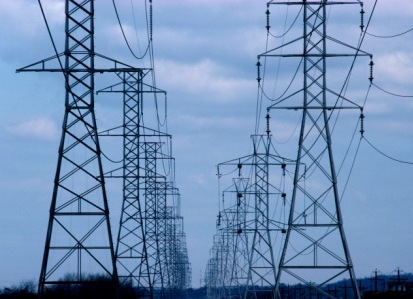UPDATES
Power shortage fuelling anti-Hamas sentiment in Gaza
March 29, 2012 | Ahron Shapiro

A fuel shortage in Gaza Strip has created some genuine hardships in the Hamas-run entity, affecting power generation as well as transportation.
While Gaza’s power plant has been operating only intermittently since February 10, coverage outside of the region was relatively scant, until the Associated Press published a lengthy catch-up piece on March 22, which sparked wider global interest.
(Fairfax’s Ruth Pollard mentioned it briefly in a story on March 12 – but only by quoting a Palestinian activist who falsely blamed Israel’s limited blockade for the problem – see Allon Lee’s most recent “Media Microscope”.)
The crisis has produced a rare glimpse into the state of play between Hamas, Egypt and the Palestinian Authority, as each side has begun blaming one another for the situation, with no role for Israel, except for Hamas to conspiratorially smear its political opponents.
Wrote the AP:
“Life here is getting worse every day,” said Rawda Sami, 22, part of a group of students waiting in vain for public taxis outside the Islamic University. “There is no power, no transportation, and none of the leaders are thinking of us.”
Ostensibly the spat revolves around fuel supplies from Egypt – but on a broader level, it is linked to Egypt’s troubled relationship with Hamas and its long-standing deep ambivalence toward Gaza itself.
Hamas wants not just fuel: It hopes to leverage the crisis into getting Egypt to open a direct trade route with Gaza.
The story includes some important background information about Gaza’s fuel supply since Hamas’ armed takeover of Gaza in 1997.
Gaza has had fuel problems since the start of the Israeli-Egyptian border blockade. Initially, the EU bought the fuel needed for the Gaza power plant from Israel, which then delivered it through one of its crossings. Eventually, the EU asked the Abbas government to pay for the fuel and get the money back from Hamas. After a standoff, Hamas did make contributions for buying the Israeli fuel – before gambling on the cheaper option of smuggled Egyptian fuel.
Reuters noted that Egypt may be hoping to use the fuel issue as leverage to get Hamas to act on implementing the Qatari Palestinian unity deal – a deal that was agreed upon by Hamas’ external arm but criticised by its Gazan leadership as being too favourable to the PA. For its part, Egypt has been trying to mediate a Palestinian unity deal for quite some time.
The reconciliation efforts have been partly brokered by Egypt and some newspaper commentators have suggested that Cairo turned off the fuel taps to put pressure on a highly hesitant Hamas to accept the proposed unity accord.
Without mentioning Egypt by name, Haniyeh appeared to give credence to the speculation. “Some parties want to continue to pressure Gaza, Hamas and the government, believing they can get concessions,” he said, adding: “Neither electricity nor anything else will push Gaza people make any concession.”
However, the Egyptian position is more complicated than that, as The Media Line‘s Omar Ghraieb reported:
Hassan Younis, the Egyptian Minister of Energy and Electricity, had this to say about where the onus for the blackouts lies – and it is Hamas. Cairo is prepared to supply fuel at low cost to Gaza in consideration of the hardships of life there, he said, but it wants the supplies to be shipped in an orderly fashion, though Israel’s Kerem Shalom crossing.
Instead, said Younis, Hamas wants to rip off Egyptian taxpayers by buying energy that is subsidized by the Egyptian government for its own people and smuggle it through the network of tunnels running under their joint border. Hamas wants to rip off Gazans by demanding the fuel be shipped through the Egypt-Gaza border terminal at Rafah, where it can collect taxes on the imports. Egypt, he said, would have none of it.
It is also important to take into account that cash-strapped Egypt has been experiencing its own fuel shortages.
Meanwhile, Hamas has resorted to fabricating stories in the media to pressure Egypt and the Palestinian Authority to come to their aid.
Last Friday, Hamas blamed the power shortage for the death of a baby. The AP later discovered the baby in question had died weeks earlier. In the past, media monitoring groups have often caught Hamas misrepresenting incidences of civilian deaths, especially those of children, in order to increase international pressure against Israel. This was a relatively rarer situation where Hamas blatantly attempted to exploit a baby’s death to increase pressure against the Palestinian Authority and Egypt.
For the most part, Gazans are blaming Hamas for the problem, but are worried about a backlash as Hamas seeks to squelch dissent.
Hamas has reportedly lashed out at Gazan taxi drivers for badmouthing their regime.
Palestinian human rights groups say that Hamas has increased the number of Fatah officials that is has arrested and tortured in the Gaza Strip recently, suggesting it is attempting to tighten its grip on Gaza in response to its rapidly slipping popularity among fed-up Gazans. According to a recent poll, support for Hamas has fallen by eight percent compared to three months ago, and stands at a paltry 27 percent, both in Gaza and the West Bank.
– Ahron Shapiro
Tags: Palestinians





